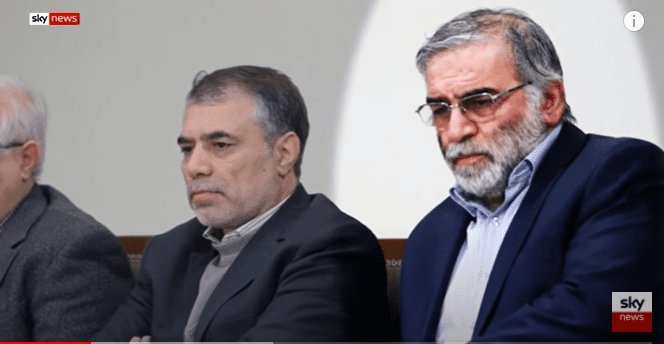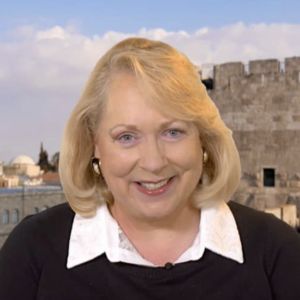The assassination of Mohsen Fakhrizadeh, the head of Iran’s military nuclear program, may have been President Donald Trump’s parting gift to U.S. allies in the Middle East. The removal of the man who navigated Iran’s way towards becoming a nuclear power, alongside the elimination of Quds Force commander Gen. Qassem Soleimani in January, has set back Iran’s plans for regional domination by years.
These two bold moves have also exposed one of the Islamic Republic’s most well-kept secrets: Tehran cannot keep its secrets or its top officials safe. Moreover, they have exposed Iran as a country that cowers when its aggression is met with absolute resolve.
Fakhrizadeh’s assassination drew the expected condemnations, and the European Union even went as far as labeling it a “criminal act contrary to human rights.” It seems that striving to obtain a nuclear weapon while constantly threatening to eliminate the Jewish state does not violate the E.U.’s principles.
On the other hand, the silence from the Arab world has been resounding. However, While officials across the region kept mum, Arab mainstream and social media made it clear that the moderate forces in the Arab world welcomed the blow dealt to Iran.
Some even mocked the crocodile tears shed by Iran and Hezbollah, its main regional proxy; Iran is the world’s chief state sponsor of terrorism and Hezbollah is its primary proxy force, having perpetrated many of the Iranian-backed terrorist attacks in the Middle East over the past decade. Now they are shocked to learn that killers, too, can be killed.
It turns out the Arab world isn’t fooled by pundits in the United States or in Israel who have cautioned that the assassination was a dangerous move that could push the region into war.
These pundits repeat the mistakes of the past and insist, for the umpteenth time, on analyzing the Middle East through Western eyes, as if they were dealing with the Cold War between the United States and the USSR. In their eyes, there is nothing wrong with Iran becoming a nuclear power, and thus they ignore the essence of the ayatollahs’ regime, its intentions and its actions.
One of the foundations of the alliance formed in recent years between Israel and the Arab states, and especially the Gulf states, is the Arab recognition of Israel’s military power, and the strong impression Israel’s willingness to confront Iran—successfully, on Syrian soil—has made on Arab rulers.
The Arabs appreciate Israel’s tenacity and they have found the Jewish state to be a supportive ally, especially in light of the United States’ clear intention to minimize its presence in the region and avoid future involvement in any conflict, even for its friends.
Arab states’ readiness to publicly side with Israel to counter Iran’s aggression reflects the rise of a new Middle East—one that boasts a solid Israeli-Arab alliance rooted in realistic interests, chief among them the need to counter the Iranian threat.
Reprinted with author’s permission from Jewish News Syndicate





